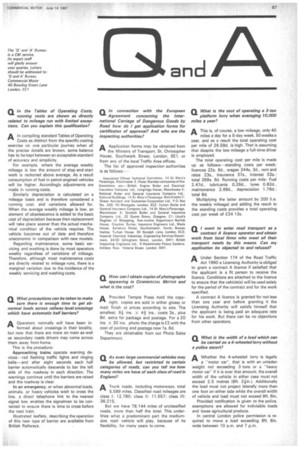Q In the Tables of Operating Costs, running costs are
Page 89

If you've noticed an error in this article please click here to report it so we can fix it.
shown as directly related to mileage run with limited exceptions. Can you explain this qualification?
AIn compiling standard Tables of Operating
Costs as distinct from the specific costing exercise on one particular journey when all the precise details are known, some balance has to be kept between an acceptable standard of accuracy and simplicity.
For example, where the average weekly mileage is low the amount of stop-and-start work is reckoned above average. As a result consumption of fuel in petrol-engined vehicles will be higher. Accordingly adjustments are made in running costs.
Similarly depreciation is calculated on a mileage basis and is therefore considered a running cost, and variations allowed for. When the average weekly mileage is low, an element of obsolescence is added to the basic cost of depreciation because then replacement will take place sooner than the actual mechanical condition of the vehicle requires. The vehicle becomes out of date and therefore uneconomic in comparison with new models.
Regarding maintenance, some basic servicing and washing is done by most operators weekly regardless of variations of mileage. Therefore, although most maintenance costs are directly related to mileage runs, there is a marginal variation due to the incidence of the weekly servicing and washing costs.




































































































































